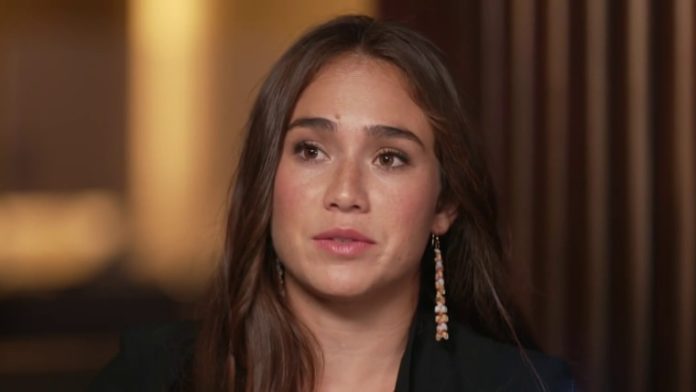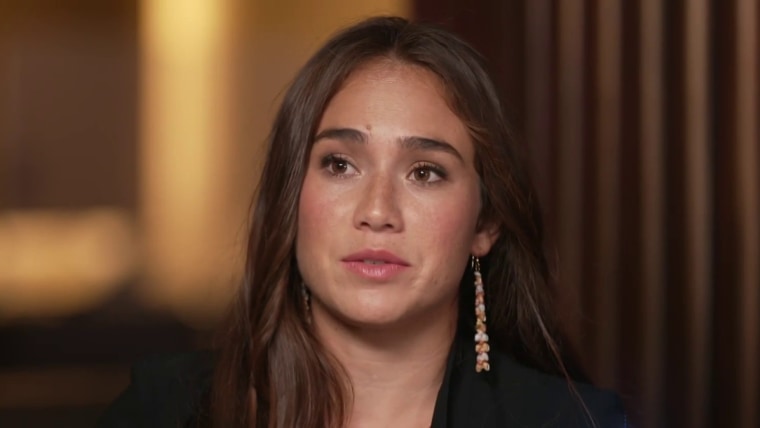Two weeks ago, The Athletic published an incredibly harrowing story that rocked the world of women’s soccer. Multiple National Women’s Soccer League players accused a prominent coach, Paul Riley of the North Carolina Courage, of sexual coercion. (Riley has denied the allegations.) In the wake of the story, league Commissioner Lisa Baird resigned, Riley was fired and Steve Baldwin, the controlling owner and CEO of the Washington Spirit women’s soccer team, stepped down (more on that later).
The players banded together and forced the cancellation of a weekend’s worth of games, and, when they returned to the pitch, brought with them public protest and a list of demands.
The players banded together and forced the cancellation of a weekend’s worth of games, and, when they returned to the pitch, brought with them public protest and a list of demands. Their bravery inspired other players from the women’s soccer world to speak out, and Alético Madrid player Deyna Castellanos released a statement accusing the coach of the Venezuelan national team of sexual abuse, as well. (That coach has also denied all allegations against him.) These events are part of a larger reckoning across the world of sports, as we saw in fencing over the last few months and in gymnastics when athletes came forward about Larry Nassar.
But there is one element to the abuse described by the women’s soccer players that has been under-discussed: the homophobic elements of it. This is an important point, because the world of women’s sports is thought to be generally queer-friendly, with many openly gay players and a large queer fan base. While it’s true that it’s much more acceptable to be openly queer in women’s sports, there are plenty of examples that show it’s still not entirely safe.
In The Athletic’s report, players alleged that Riley, while he was coaching the Portland Thorns, was hyperfocused on their sexual orientation. Former Thorns players Sinead Farrelly and Mana Shim said Riley brought them back to his apartment one night and pressured them to kiss each other while he watched, incentivizing them with decreased team conditioning if they complied. Farrelly claimed that when she began dating one of her teammates, Riley became focused on their relationship, saying Farrelly couldn’t be gay because she was “too hot to be a lesbian” and that she wasn’t a “real lesbian” because she had previously been involved with men.
Shim said when she arrived in Portland in 2014, she was instructed not to talk publicly about being gay. In 2018, Riley defended Courage player Jaelene Daniels after she blamed her homophobia on her Christian faith, saying she had “a good heart.” (Riley was fired from the Thorns in 2015 after Shim reported his behavior and an investigation found he had violated team policy; he was hired by the Courage just months later.)
But it goes beyond Riley and the Portland organization’s behavior nearly a decade ago. The Washington Post in August reported that Washington Spirit coach Richie Burke was verbally abusive toward his players, including using homophobic slurs, something also alleged by youth players he had coached previously. (Burke was fired in September after an investigation into his conduct.) On Sept. 1, it was also announced that Andy Carroll, the chief business officer for the Real Salt Lake organization, which oversees the NWSL’s Utah Royals FC, was taking a leave of absence. Among other things, The Salt Lake Tribune reported Carroll would comment often on players’ sexual orientation, saying things like, “They’re all just a bunch of lesbians.”
But going back further to 2016, leaders in the Spirit organization have been accused of homophobia. That year, OL Reign (which was then called Seattle Reign) player Megan Rapinoe accused Bill Lynch, the Spirit’s owner, of anti-gay behavior. “I have had conversations with Spirit players current and past, the fact that [the organization doesn’t] have a Pride Night,” Rapinoe said at the time. “They’ve made it pretty clear, at least internally, that that’s not a game they are interested in, which is homophobic to me. … Yeah I do think that Bill Lynch is homophobic.”
Married NWSL players Ali Krieger and Ashlyn Harris, who currently play for the Orlando Pride, corroborated Rapinoe’s accusations in 2019. The pair reported that they clashed frequently with Lynch during their time in Washington. (In 2018, Lynch sold his majority ownership stake to Steve Baldwin, who stepped down in the wake of the recent allegations against coach Richie Burke.)
To be clear, this is not just a problem in women’s soccer. NCAA women’s basketball has long grappled with a homophobic culture that has encouraged players to stay closeted or pressured them to make their appearance more feminine. The WNBA also has a number of openly gay players, and a strong LGBTQ fan base. But it has really only openly embraced its inherent queerness in recent years.
The reality is that even leagues known to be queer-friendly are often run by white, cishet men. As a result, they replicate — and enforce — existing systems of power and oppression. “Women’s sports, traditionally, have been built by men and are also trying to use the structures of men’s sports,” Meg Linehan, one of The Athletic reporters who broke the NWSL story, said on MSNBC. “That leads to problems in a major way.”
The reality is that even leagues known to be queer-friendly are often run by white, cishet men.
It’s always been this way. Throughout the history of professionalized women’s sports, players have been forced to wear feminized clothing (like the skirts and makeup worn by the All-American Girls Professional Baseball League during World War II) or told to keep quiet about their personal life if they didn’t have a male partner. They have been sexualized in ways that would make them appeal to the straight male gaze. And while the world has changed over the last century, female athletes still deal with stereotypes about being gay or masculine and, therefore, unappealing.
There are signs of hope. New data from Outsports, the University of Winchester and the Sports Equality Foundation shows that LGBTQ athletes who are out to their teams receive widespread, deep support from their teammates. The bravery of players like Farrelly, Shim and others who have come forward will also, hopefully, highlight how and why cultures of sexism, abuse and homophobia must be eradicated.
But in order to root these problems out completely, sports must recognize the ways that homophobia is deeply related to sexism and be committed to dismantling all of it. The recent spate of revelations out of the world of women’s soccer shows how far we still have to go.








